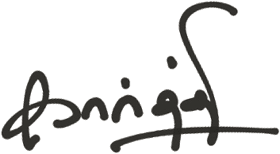Jun 22, 2025
Motherhood in the age of AI
Motherhood has never been easy. But motherhood in the age of AI—especially when you build AI products for a living—is a whole new kind of emotional labor.
The hardest questions don’t come from regulators or ethics panels. They come from my own children.
“What does our future look like?”
“Will we have jobs when we grow up?”
And the truth? I don’t have an answer.
I do what most mothers do when they don’t have answers: I hug them tighter, tell them to follow what their heart yearns for, and to never forget the joy of laughter. But inside, the weight sits heavy.
The same tools I help create—these intelligent systems—are changing the world faster than we can comprehend. What used to take me 25 minutes now takes 5, thanks to AI. I can do 5x more work, or the same work with one-fifth the team. That’s not just productivity—it’s disruption. We used to joke about the “faster, better, cheaper” triangle. AI quietly made all three possible.
I used to spend days analyzing patterns. Now, I feed 3,000 data points, and I get an answer in minutes. Precise. Actionable. Tireless. So what are we talking about when we say AI is “just a tool”? It’s not just a tool. It’s an amplifier. Of ability. Of efficiency. Of consequence.
And that’s where the ache begins.
If every human is now AI-augmented, then what does that mean for humans without augmentation? For children finding their way into a world that no longer plays by the rules we grew up with?
These days, we make slow dinners together. We watch shows, talk more, laugh louder, and work a little less—not because we have it all figured out, but because we don’t. And that unknowing binds us.
This week, YouTube served me a Geoffrey Hinton interview. Maybe the algorithm knew what I was feeling before I did.
Hinton—one of the godfathers of AI—didn’t speak like a tech visionary. He spoke like a father. Like someone who helped bring something into the world and now wonders if it’s already beyond us. His voice carried regret, fear, and a call for humility.
It was the most human conversation I’ve heard in a long time—from a man who helped build the machines.
So here I am.
A mother.
An AI builder.
A human, trying to hold space for both hope and fear.
Trying to raise children in a world I no longer fully understand.
And loving them harder, every day, for it.

